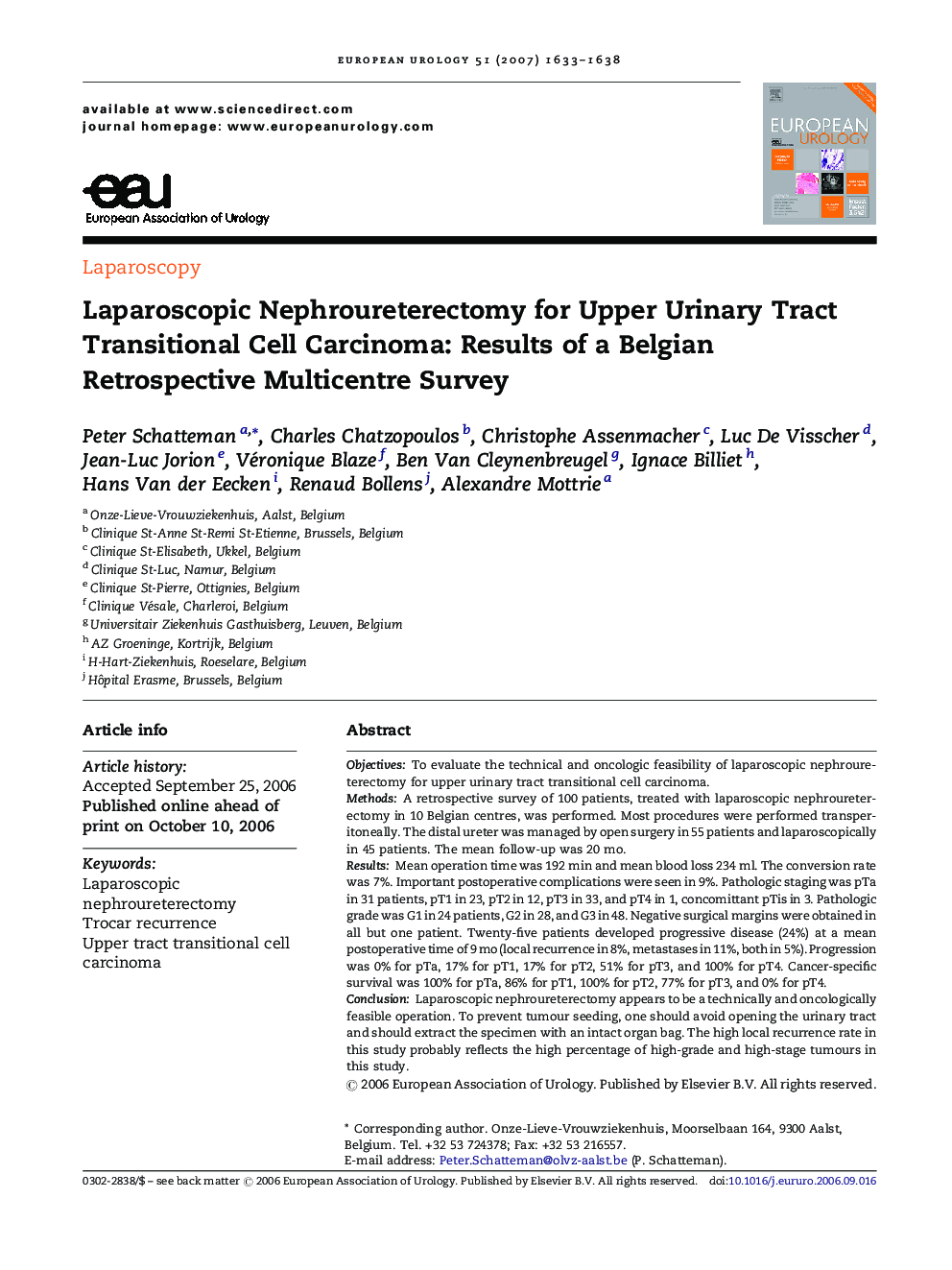| Article ID | Journal | Published Year | Pages | File Type |
|---|---|---|---|---|
| 3928497 | European Urology | 2007 | 6 Pages |
ObjectivesTo evaluate the technical and oncologic feasibility of laparoscopic nephroureterectomy for upper urinary tract transitional cell carcinoma.MethodsA retrospective survey of 100 patients, treated with laparoscopic nephroureterectomy in 10 Belgian centres, was performed. Most procedures were performed transperitoneally. The distal ureter was managed by open surgery in 55 patients and laparoscopically in 45 patients. The mean follow-up was 20 mo.ResultsMean operation time was 192 min and mean blood loss 234 ml. The conversion rate was 7%. Important postoperative complications were seen in 9%. Pathologic staging was pTa in 31 patients, pT1 in 23, pT2 in 12, pT3 in 33, and pT4 in 1, concomittant pTis in 3. Pathologic grade was G1 in 24 patients, G2 in 28, and G3 in 48. Negative surgical margins were obtained in all but one patient. Twenty-five patients developed progressive disease (24%) at a mean postoperative time of 9 mo (local recurrence in 8%, metastases in 11%, both in 5%). Progression was 0% for pTa, 17% for pT1, 17% for pT2, 51% for pT3, and 100% for pT4. Cancer-specific survival was 100% for pTa, 86% for pT1, 100% for pT2, 77% for pT3, and 0% for pT4.ConclusionLaparoscopic nephroureterectomy appears to be a technically and oncologically feasible operation. To prevent tumour seeding, one should avoid opening the urinary tract and should extract the specimen with an intact organ bag. The high local recurrence rate in this study probably reflects the high percentage of high-grade and high-stage tumours in this study.
